第78章 CHAPTER XXI(2)
Why? We answer that question usually in angry reliance on certain superb qualities, injured fine qualities of ours undiscovered by the world, not much more than suspected by ourselves, which are still our fortress, where pride sits at home, solitary and impervious as an octogenarian conservative. But it is not possible to answer it so when the brain is rageing like a pine-torch and the devouring illumination leaves not a spot of our nature covert.
The aspect of her weakness was unrelieved, and frightened her back to her loathing. From her loathing, as soon as her sensations had quickened to realize it, she was hurled on her weakness. She was graceless, she was inconsistent, she was volatile, she was unprincipled, she was worse than a prey to wickedness--capable of it; she was only waiting to be misled. Nay, the idea of being misled suffused her with languor; for then the battle would be over and she a happy weed of the sea no longer suffering those tugs at the roots, but leaving it to the sea to heave and contend.
She would he like Constantia then: like her in her fortunes: never so brave, she feared.
Perhaps very like Constantia in her fortunes!
Poor troubled bodies waking up in the night to behold visually the spectre cast forth from the perplexed machinery inside them, stare at it for a space, till touching consciousness they dive down under the sheets with fish-like alacrity. Clara looked at her thought, and suddenly headed downward in a crimson gulf.
She must have obtained absolution, or else it was oblivion, below.
Soon after the plunge her first object of meditation was Colonel De Craye. She thought of him calmly: he seemed a refuge. He was very nice, he was a holiday character. His lithe figure, neat firm footing of the stag, swift intelligent expression, and his ready frolicsomeness, pleasant humour, cordial temper, and his Irishry, whereon he was at liberty to play, as on the emblem harp of the Isle, were soothing to think of. The suspicion that she tricked herself with this calm observation of him was dismissed. Issuing out of torture, her young nature eluded the irradiating brain in search of refreshment, and she luxuriated at a feast in considering him--shower on a parched land that he was! He spread new air abroad. She had no reason to suppose he was not a good man: she could securely think of him. Besides he was bound by his prospective office in support of his friend Willoughby to be quite harmless. And besides (you are not to expect logical sequences) the showery refreshment in thinking of him lay in the sort of assurance it conveyed, that the more she thought, the less would he be likely to figure as an obnoxious official--that is, as the man to do by Willoughby at the altar what her father would, under the supposition, be doing by her. Her mind reposed on Colonel De Craye.
His name was Horace. Her father had worked with her at Horace. She knew most of the Odes and some of the Satires and Epistles of the poet. They reflected benevolent beams on the gentleman of the poet's name. He too was vivacious, had fun, common sense, elegance; loved rusticity, he said, sighed for a country life, fancied retiring to Canada to cultivate his own domain; "modus agri non ita magnus:" a delight. And he, too, when in the country, sighed for town. There were strong features of resemblance. He had hinted in fun at not being rich. "Quae virtus et quanta sit vivere parvo." But that quotation applied to and belonged to Vernon Whitford. Even so little disarranged her meditations.
She would have thought of Vernon, as her instinct of safety prompted, had not his exactions been excessive. He proposed to help her with advice only. She was to do everything for herself, do and dare everything, decide upon everything. He told her flatly that so would she learn to know her own mind; and flatly, that it was her penance. She had gained nothing by breaking down and pouring herself out to him. He would have her bring Willoughby and her father face to face, and be witness of their interview--herself the theme. What alternative was there?--obedience to the word she had pledged. He talked of patience, of self-examination and patience. But all of her--she was all marked urgent. This house was a cage, and the world--her brain was a cage, until she could obtain her prospect of freedom.
As for the house, she might leave it; yonder was the dawn.
She went to her window to gaze at the first colour along the grey.
Small satisfaction came of gazing at that or at herself. She shunned glass and sky. One and the other stamped her as a slave in a frame. It seemed to her she had been so long in this place that she was fixed here: it was her world, and to imagine an Alp was like seeking to get back to childhood. Unless a miracle intervened here she would have to pass her days. Men are so little chivalrous now that no miracle ever intervenes. Consequently she was doomed.
She took a pen and began a letter to a dear friend, Lucy Darleton, a promised bridesmaid, bidding her countermand orders for her bridal dress, and purposing a tour in Switzerland. She wrote of the mountain country with real abandonment to imagination. It became a visioned loophole of escape. She rose and clasped a shawl over her night-dress to ward off chillness, and sitting to the table again, could not produce a word. The lines she had written were condemned: they were ludicrously inefficient. The letter was torn to pieces. She stood very clearly doomed.